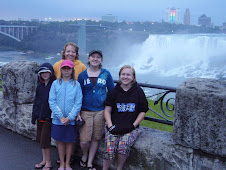Well-Rounded Human Being
What is critical thinking? What does critical thinking have to do with English 2010? Better yet, what does it have to do with the film “12 Angry Men”? The short answer, everything. Critical thinking is why juror number eight gets his way, it’s the theme of English 2010, and is a part of our everyday lives.
In “12 Angry Men” juror number eight doesn’t agree with the thought that the defendant is guilty, he finds a reasonable doubt and using critical thinking he finds even more reasons. Slowly he uses his ability to think critically and his considerable skill with reading people to convince the eleven other jurors that maybe, just maybe, the defendant didn’t do it. His critical thinking skills allow him to jump from one thought to another and connect information that seems to be completely unrelated. Juror number eight then presents this information in a clear and a concise manner that helps him persuade the other jurors over to his side. Critical thinking, the hero of “12 Angry Men”, is also the star of English 2010.
English 2010 is a college course on critical thinking; how to do it, how to organize it, how to write it. Critical thinking is a major part of any writing that you will do; whether it is a newspaper article or fantasy story, good critical thinking skills will be what sets your work apart from everything else out there. Critical thinking allows you to step outside your own little box and think about how others will view your work; it allows you to become the reader of your own writing. When you step outside your head and look at things the way others would, readers or those on the opposing side, you give your thoughts a chance to mature and become stronger because you have taken the other half of your partnership into account. Every work of literature is a partnership; some are more noticeable than others. When you write a persuasive paper you are entering into a partnership with the opposing side of what you are supporting, when you write a sci-fi story you enter into a partnership with whoever picks up your story and reads it. Critical thinking allows you to edit and review your own work as if you were another person. Critical thinking is important in writing, but not everyone is a writer, everyone is a critical thinker though.
In this day and age you cannot watch the television, pick up a newspaper, or get on the internet without being assaulted by some form of persuasion. To buy this, to support that man, to live in this city, to revoke that law; everyone seems to be trying to get you to do something. Without critical thinking we, as consumers, would be unable to ferret out the truth from the near truth or the quacks from the geniuses. Critical thinking is vital to one part of every Americans’ life, politics. In the text Current Issues and Enduring Questions, by Sylvan Barnet and Hugo Bedau, the majority of the “current issues” are political issues. More and more the media is being used as a way to inform the public of what goes on behind closed doors on capital hills across the country, without well-developed critical thinking skills we would have to take what we hear and read at face value. It is the right and the duty of every citizen to question what we are told, to think about things from both sides, and to draw our own conclusions independent of party affiliation or family influence. Critical thinking skills are a central part of exercising that right and performing that duty.
Critical thinking is a part of everyone’s life and we all have the ability to become critical thinkers. Sadly, not everyone takes advantage of that ability. Without regular use and the occasional argument, our critical thinking skills will become faulty and unreliable. Daily use through reading, writing, thinking, and imagining will keep critical thinking skills sharp and quick, making you a better citizen and a well-rounded human being.
